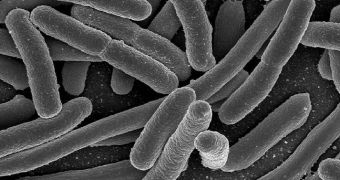Over the past few decades, the number of drugs that have been extracted from plants has increased considerably, up to a point where the planet alone cannot handle producing so much of these chemicals.
This is the situation we're in right now – we cannot rely on plant s to produce the helpful remedies, and we cannot produce the stuff by ourselves, through chemical synthesis.
The problem seemed almost insurmountable until recently, when a team of experts based at the Massachusetts Institute of Technology (MIT) proposed a simple solution.
Working in collaboration with experts at the Tufts University, the investigators developed a method of engineering Escherichia Coli (E. coli) bacteria to produce large amounts of drugs.
They work was focused on getting the microorganism to produce large amounts of a chemical that is a critical compound in the cancer drug Taxol. In nature, the substance is extracted from the bark of the Pacific yew tree.
But getting it is a real problem, and one with which experts won't have to deal for much longer. The strains of E. coli that were engineered at MIT can produce up to 1,000 times more of the chemical.
The substance is a precursor to the actual drug, and it is called taxadiene. These microorganisms can produce a lot more of the stuff than any other engineered microbes out there today.
“If you can make Taxol a lot cheaper, that’s good, but what really gets people excited is the prospect of using our platform to discover other therapeutic compounds in an era of declining new pharmaceutical products and rapidly escalating costs for drug development,” explains expert Gregory Stephanopoulos.
He is the coordinator of the international team that conducted the findings, and also one of the sneior authors for the new paper. The expert holds an appoint as the W.H. Dow Professor of Chemical Engineering at MIT.
The technique the team used to reach such high chemical production levels is detailed in a paper published in the October 1 issue of the top-rated journal Science.
Some of the most important implications these findings have include bringing down manufacturing costs for drugs such as Taxol.
Additional advantages could be discovering new drugs against cancer, as well as other conditions, such as Alzheimer’s and hypertension.
Oncologists say that the average cost for a dose of the drug Taxol is $10,000. This is what a patient pays to get the chemical, even if it only costs a few hundred dollars to produce it.
Creating excess amounts of the chemical will allow researchers to investigate its properties in more detail, and possibly create better variants in the fight against cancer.

 14 DAY TRIAL //
14 DAY TRIAL //